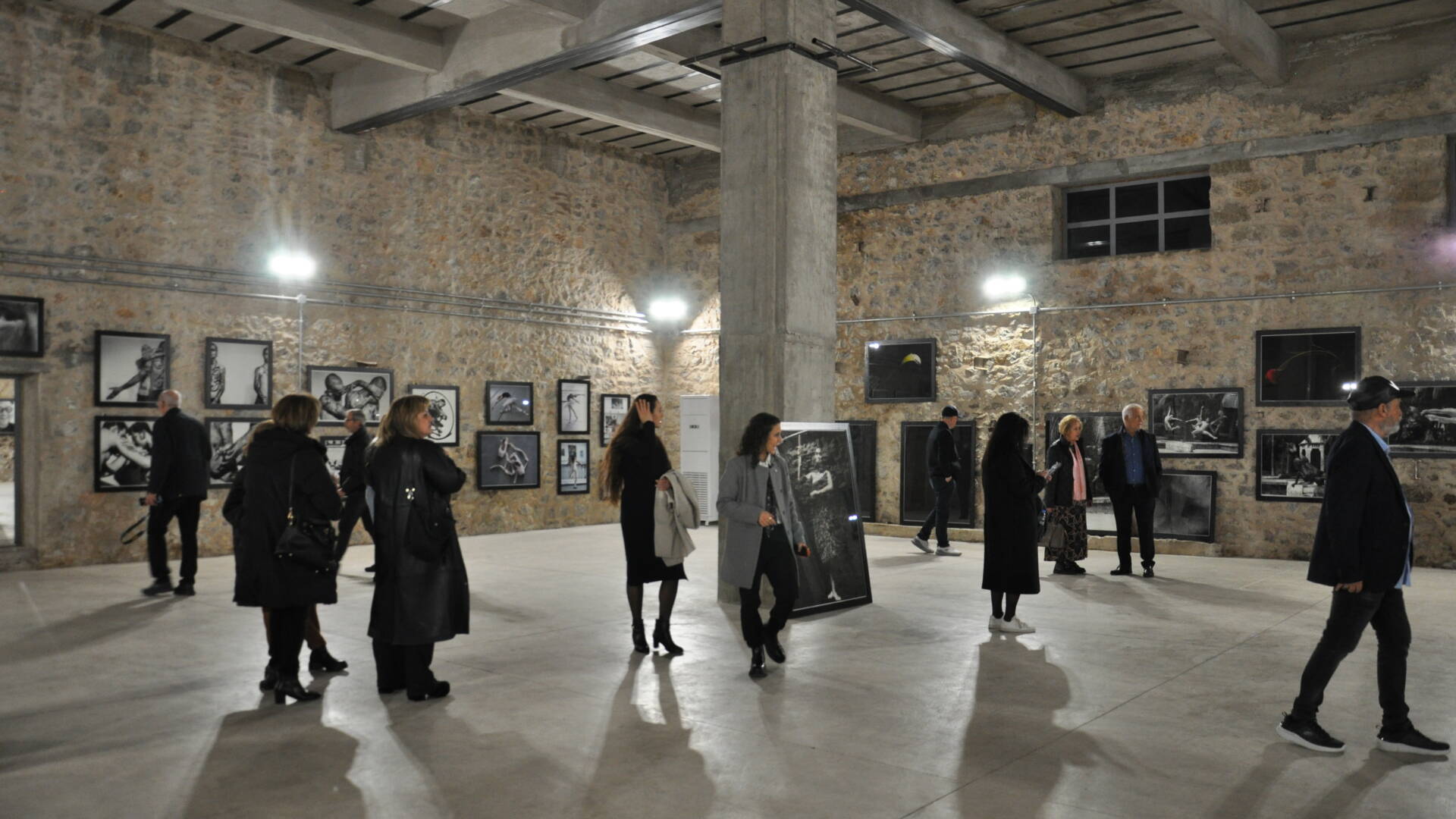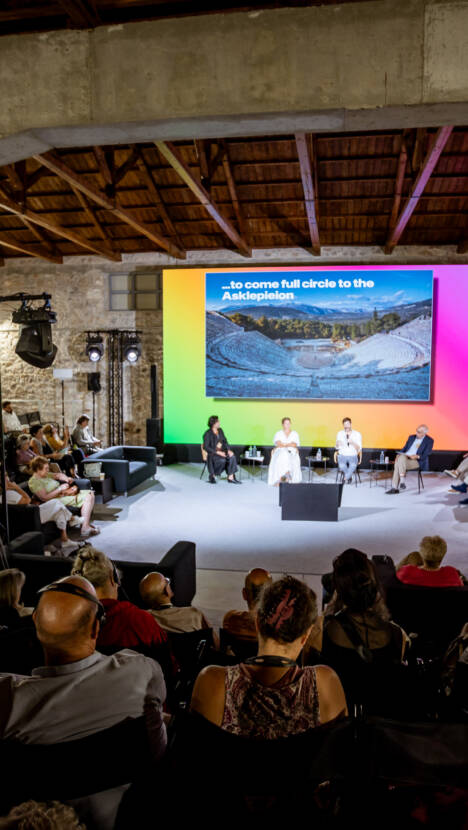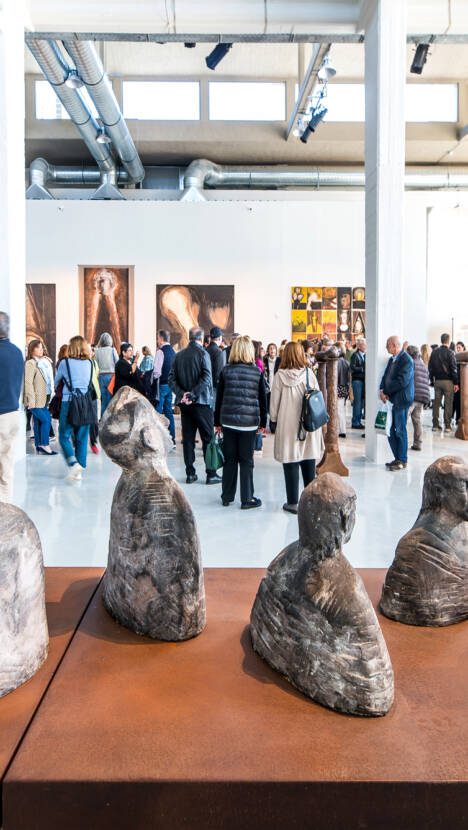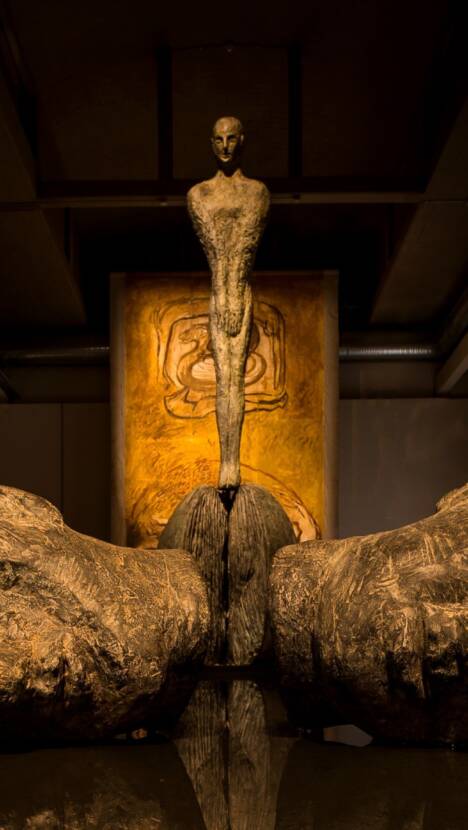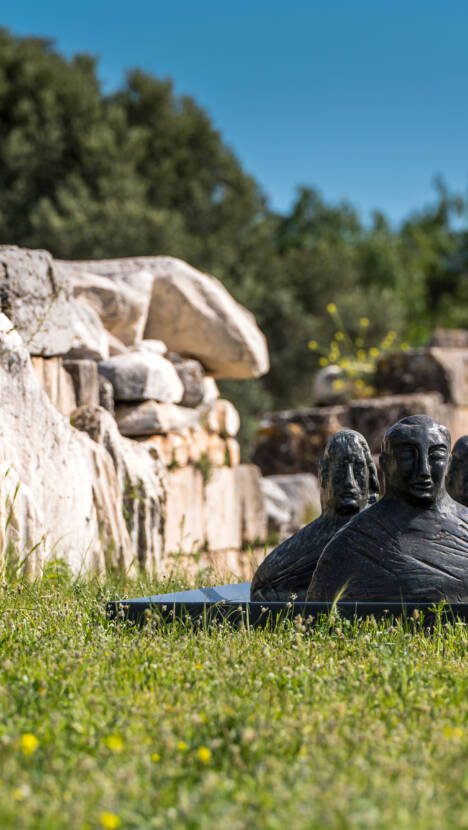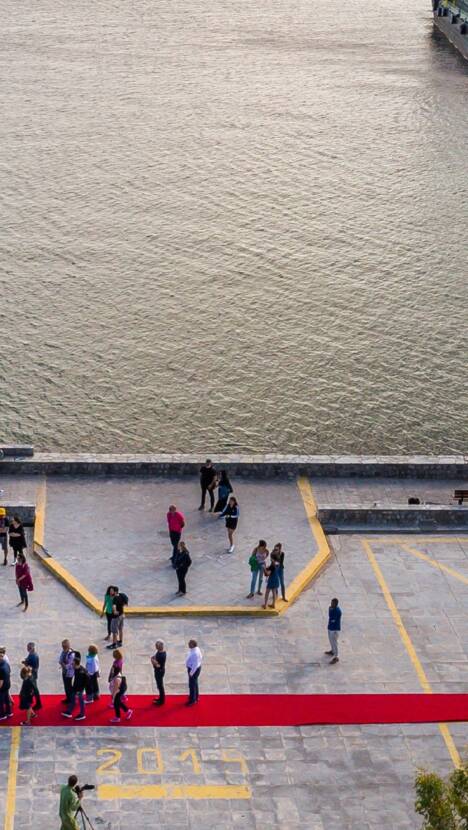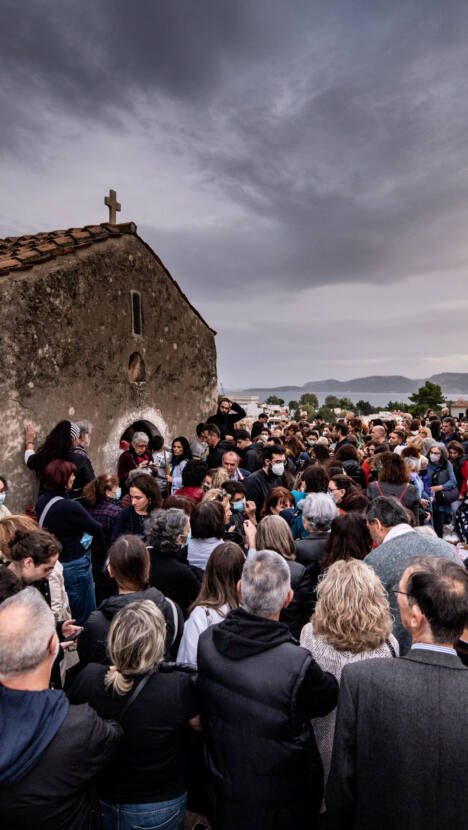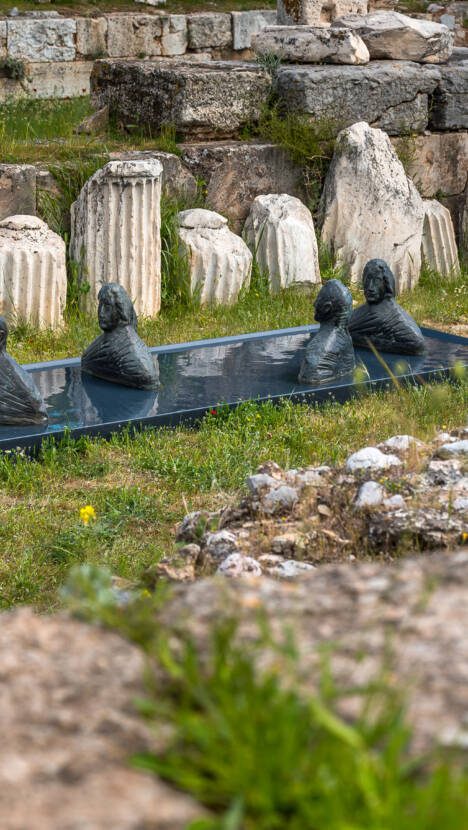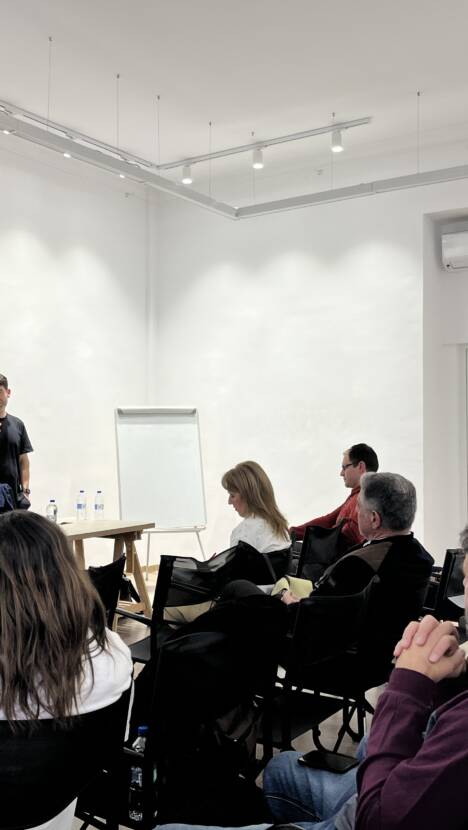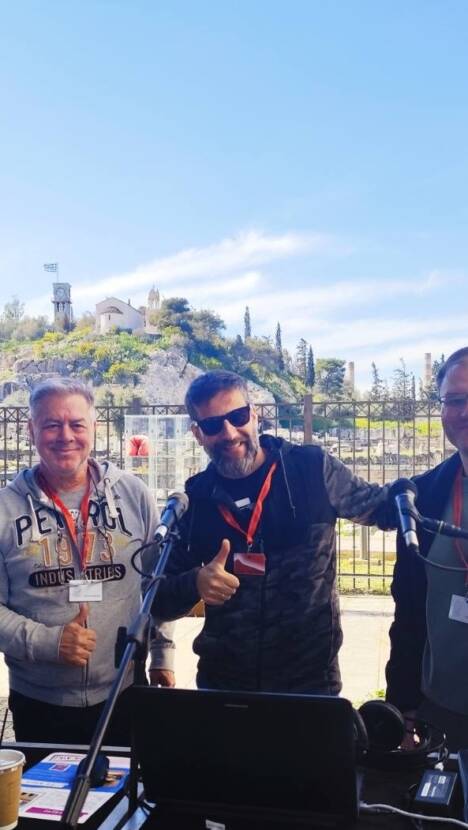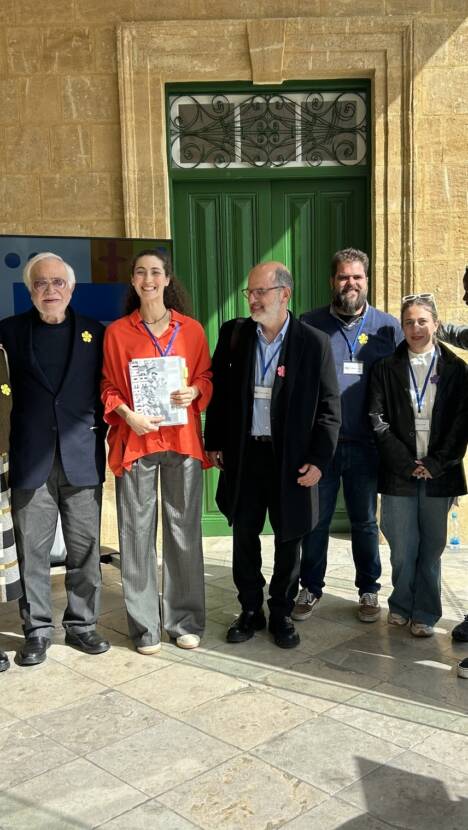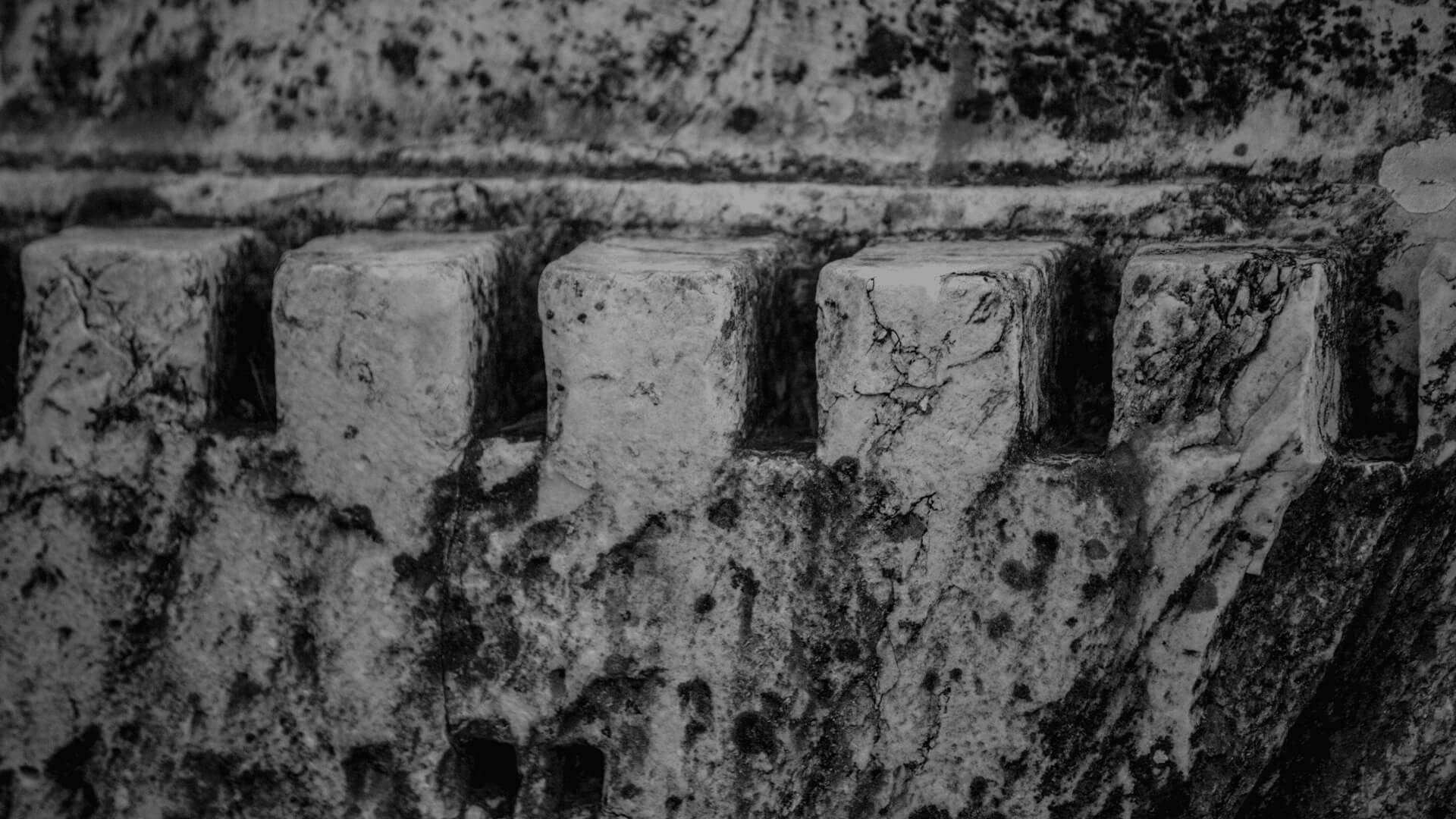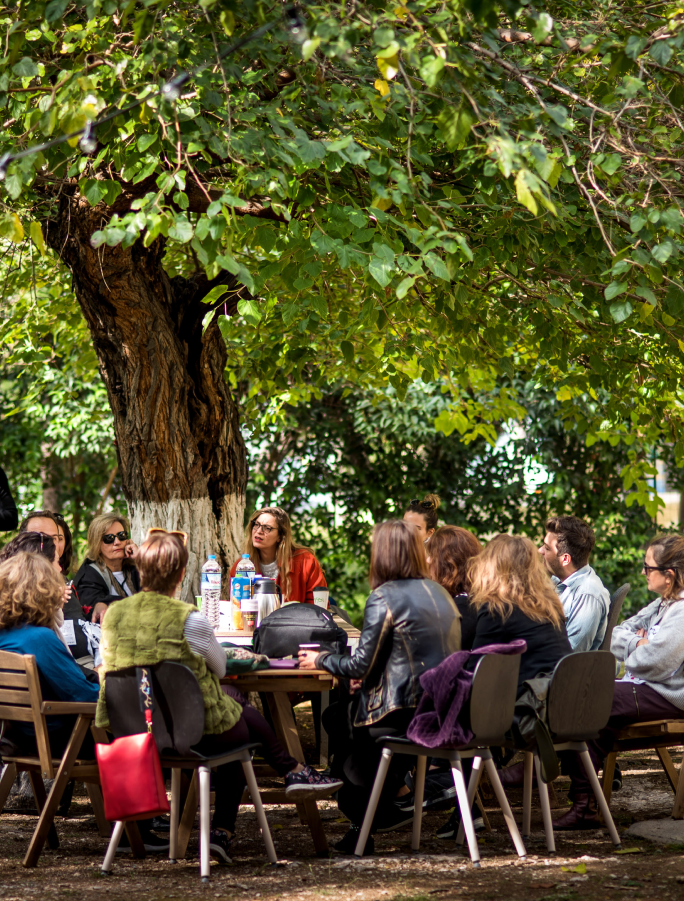Time
19:00
Staffed by a team of excellent actors (Christos Loulis, Giorgos Gallos, Michalis Economou, Alexia Kaltsiki, Theodora Tzimou, Giannis Klinis, Aeneas Tsamatis, Elias Moulas, Manos Petrakis, Tasos Karachalios, Vasilis Panagiotopoulos, Giorgos Poulios), premiered by Reni Pittaki, the performance by Dimitris Karantzas raises crucial questions about what constitutes “society,” what is meant by the persistent adherence to power and the need for faith in a guide, human or divine, in a broken world.
“The axis through which I read the work,” says Karantzas, “is the course of a people who, from the point of absolute faith, move to questioning and then to conflict, until reaching a manic, spasmodic reaction. Neither blind faith works nor blind reaction. Just like seeing the impossibility of the social contract.”
The koilon (the audience area) and the orchestra come together to “participate” in a joint discussion about the defeat, the difficulty of its acceptance and the embarrassment of the aftermath, with the participation of volunteers who little by little enter the space, composing a “society” that looks for the common thread of existence after the catastrophe, as a reflection of the current historical situation.
“The Persians represent any society: it is like taking an X-ray of the losing side and of a society that does not know how to proceed after a catastrophic defeat. And Epidaurus functions as a public platform. As in a square that is probably very close to us or in some other country, people talk about how they will resist and how they will hold on when they have lost all their reference points. The Persians lose faith in the king, then in the concept of monarchy, then in God and finally in their own ability to react.”
At the same time, the Persian, Atossa, played by Reni Pittaki, who returns to Epidaurus after 20 years, is “the cold noble voice of power,” which by all means wants to be preserved and continued in an almost decimated society. “Two completely different views of what people mean,” says Karantzas.
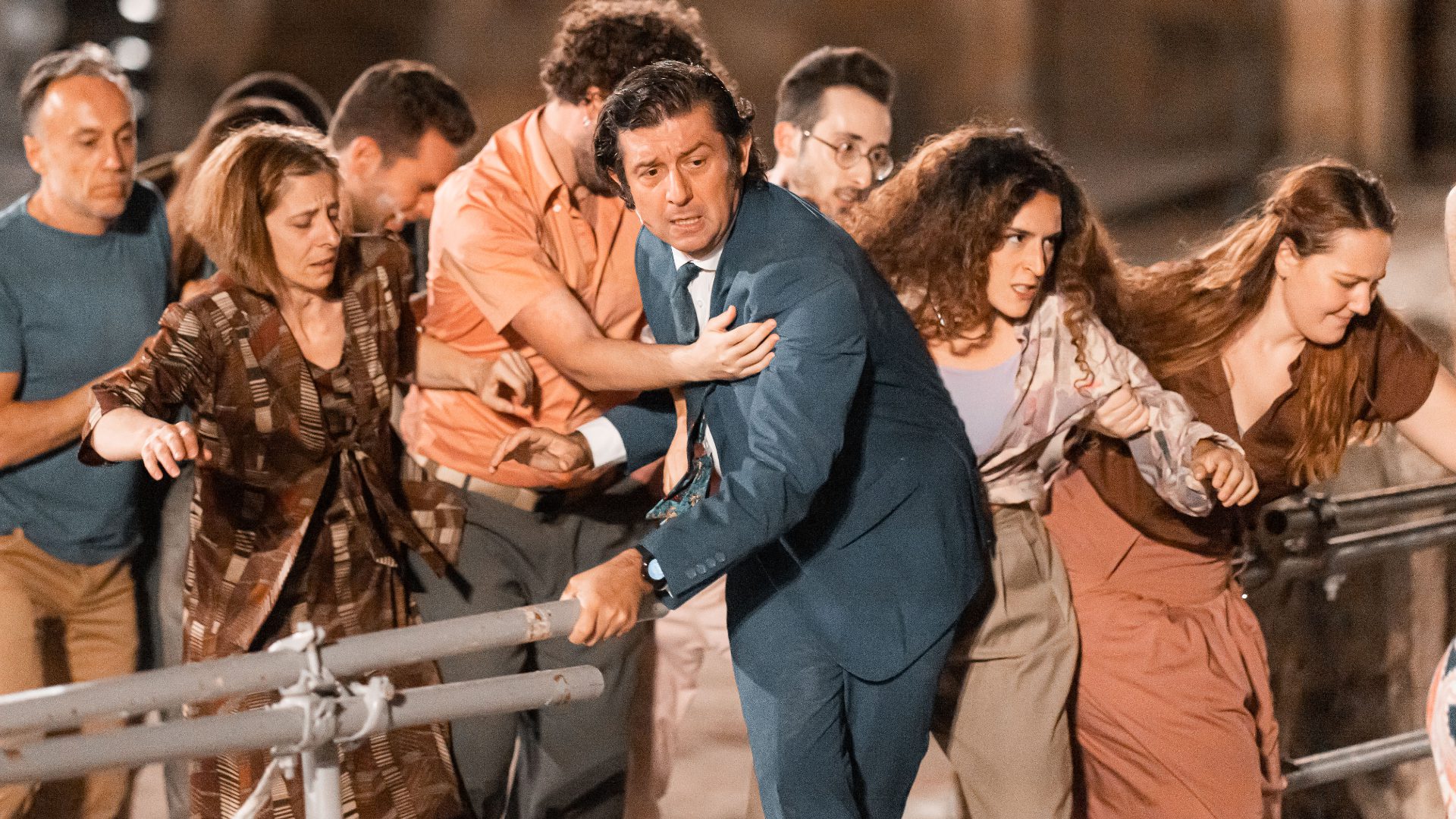
A few words about the project
Written in 472 BC., Aeschylus’ tragedy is perhaps the oldest theatrical record in Greek history. In Susa, the Persian capital, the citizens that have been left behind and their queen, Atossa, tormented by bad omens, await news of Xerxes’ military operation in Greece. A messenger announces the terrible result of the Battle of Salamis: the Persian army and its elite leaders have been crushed. Atossa and Choros summon the ghost of Darius for guidance. The glorious king condemns the insult of Xerxes, who wanted to tame nature and the divine will, and predicts even more calamities. With the arrival of Xerxes, the crash reaches its peak. The balance now leans decisively towards the terror of the end.
The work goes through endless lists of names: those who first lit the path of hope, victory and solidarity, now fall one by one, lost in the darkness of a place in ruins, a people on the brink of horror, reason and the obedience.
The Persians as a tragedy of humanity, as a microsystem reflecting on issues of existence and coexistence, unresolved over the centuries, becomes, under the direction of Karantzas, a common ground for a conversation that indirectly illuminates the multiple global challenges of today. The theater is the public space, the Church of the Municipality, the City. The Persian Chorus, the “society”, begins with faith and obedience, ending, after annihilation, in an anarchic crowd without a guide or point of reference.
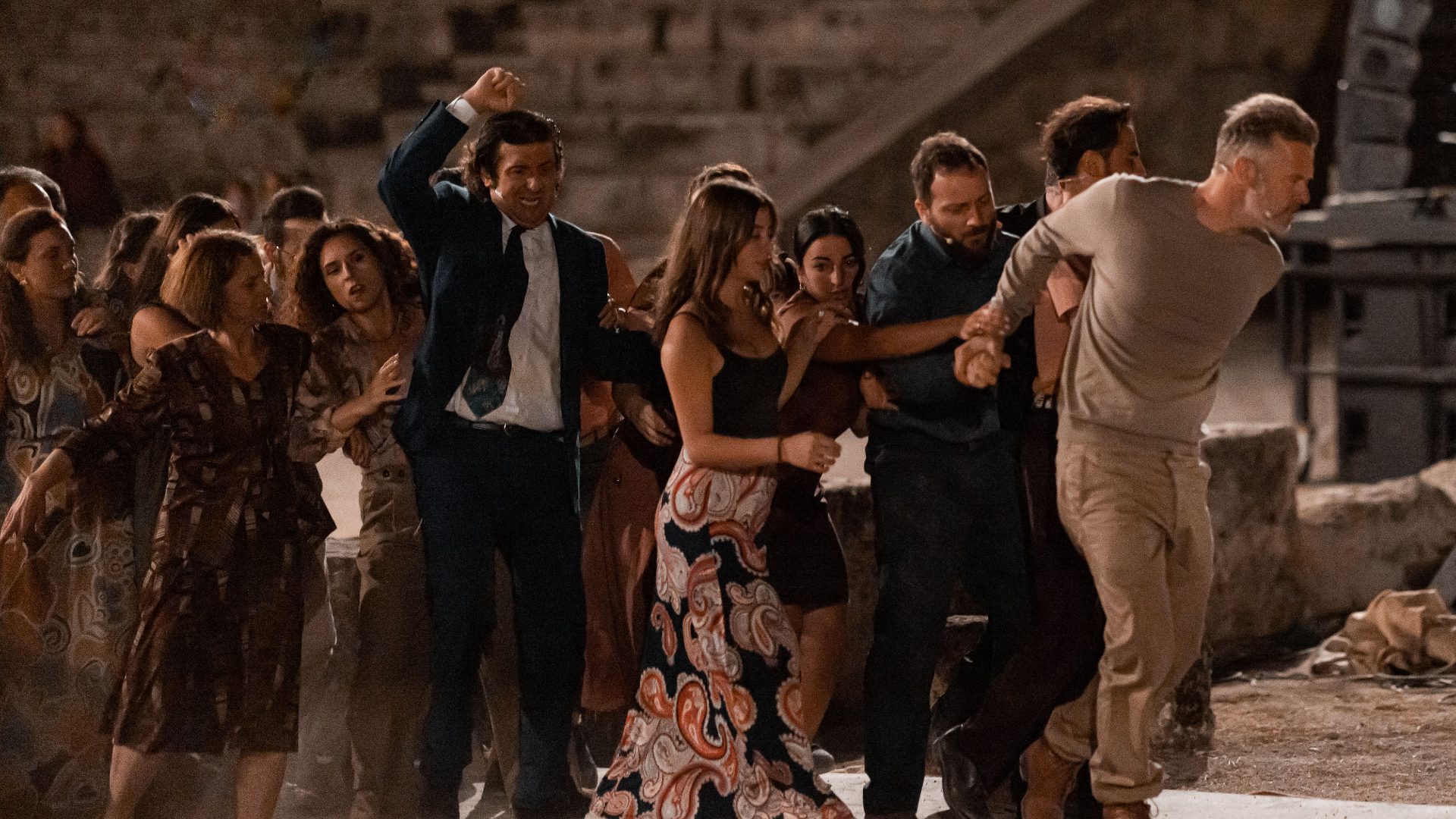
A few words about the AESCHYLUS project ^
The performance of Aeschylus’ The Persians, directed by Dimitris Karantzas is held as part of the AESCHYLUS project ^ by 2023 Eleusis European Capital of Culture, where original performances are presented, based exclusively on the works of the great Eleusinian tragedian. The aim of the action is to institute a rare dialogue on Aeschylus Drama. In this context, on July 23 & 24, the project also presented the performance of Klytaimnḗstra at the Old Olive Mill Open Theater, by the renownedBelgian group tg STAN.



